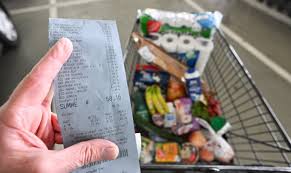
German inflation unexpectedly slowed in January in its first decline for several months, official data showed Friday, bolstering the case for further eurozone interest rate cuts.
The annual inflation rate in Europe’s largest economy was 2.3 per cent this month, federal statistics agency Destatis said in its preliminary report, down from 2.6 per cent in December.
Analysts surveyed by financial data firm FactSet had expected no change.
Core inflation — which excludes volatile food and energy costs and is closely watched by the European Central Bank — slowed to 2.9 per cent from 3.3 per cent in December.
Energy prices continued to fall and were down 1.6 per cent in January. Food price inflation slowed although services inflation remained elevated.
Inflation in Germany had been ticking up for several months after falling below the ECB’s two-percent target last year.
The rate across the whole 20-nation eurozone had also been rising, fuelling fears that the Frankfurt-based institution might have to slow its current cycle of rate cuts.
So the unexpected fall in German inflation “is a welcome surprise for both consumers and the European Central Bank,” said ING bank analyst Carsten Brzeski.
The news “paves the way for more rate cuts,” he said, in line with other analysts’ views that the ECB will press on with lowering borrowing costs in the months to come.
The ECB cut rates by a quarter point Thursday, its fourth consecutive reduction.
The ECB had hiked rates from mid-2022 to tackle a spike in inflation, but high borrowing costs have been weighing heavily on the eurozone, which recorded zero growth at the end of 2024.
In France, the eurozone’s second-biggest economy, inflation came in at 1.4 per cent in January, up slightly from 1.3 per cent in December, figures from the INSEE statistics institute showed Friday.





